A shocking discovery at a peaceful lake
The creature had a rugged shell, spikes running down its back, and a prehistoric appearance — resembling something out of the Jurassic era.
Unsure of what she had encountered, the woman took a photo and shared it on Facebook, sparking curiosity among locals. Many were baffled by the animal’s dinosaur-like appearance until a former Florida resident and local parish councillor, Denise Chamberlain, recognized it immediately. The mysterious creature turned out to be a juvenile alligator snapping turtle, a species native to North and Central America and notorious for its powerful bite.
Identifying the mysterious reptile
Denise Chamberlain, who had worked in Florida and was familiar with the species, quickly realized the potential danger. Speaking with PA Media, she explained that she knew exactly what it was the moment she saw the photo. “I looked at it and immediately thought, ‘Oh goodness, I know what you are,’” Chamberlain said.
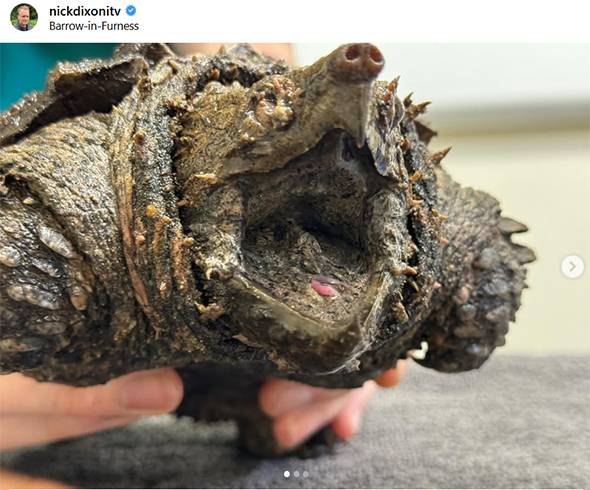
She described how alligator snapping turtles use an intimidating defense mechanism: when threatened, they open their mouths wide, displaying their powerful beak-like jaws. Known for their aggressive temperament, these turtles can easily sever a finger with a single snap.
Realizing the risk it posed — not only to humans but to the delicate balance of the lake’s ecosystem — Chamberlain decided to act quickly to remove the animal safely.
A cautious rescue mission
Armed with safety gloves and a shopping basket, Chamberlain waded carefully into the cold, murky waters to capture the turtle. “It was just sitting in the shadows with its beak above the waterline, looking like a little dinosaur,” she recalled.
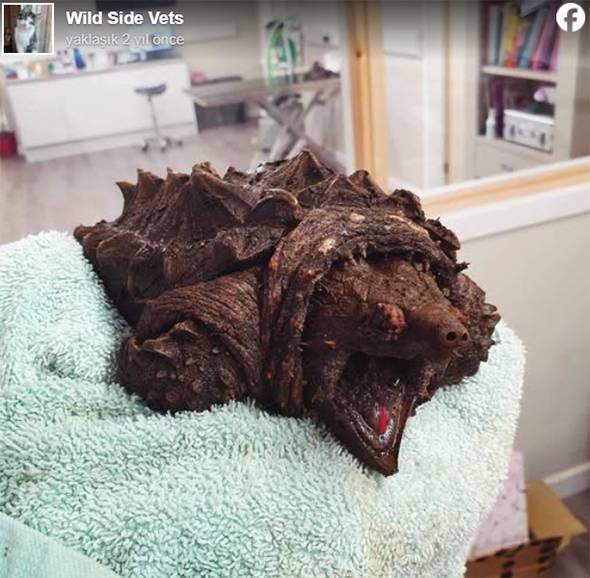
Luckily, the cold temperature made the turtle sluggish, allowing her to lift it into the basket without incident. Still, the creature tried to warn her off by snapping its powerful jaws — a reminder of the danger she faced.
Once rescued, the turtle, later nicknamed Fluffy, was fed a meal of raw chicken before being taken to Wild Side Vets in Barrow-in-Furness.
Why this “prehistoric” species is a problem
While fascinating to look at, the alligator snapping turtle poses a serious ecological threat when introduced outside its natural habitat. Chamberlain warned that the species could “upset the ecology of the tarn,” consuming local fish and small animals and disrupting the lake’s delicate balance.
Native to southern U.S. swamps and rivers, these turtles can grow up to 200 pounds and live for over a century. Because they have no natural predators in England, even a single individual can cause extensive damage to native wildlife populations.
Wild Side Vets confirmed that it’s rare to encounter such species in the UK. Dr. Kate Hornby, the clinic’s owner, said: “It’s certainly the first one we’ve seen at the clinic. It’s not particularly dangerous at this size, but it could easily cause significant damage to a finger.”
A reminder about responsible pet ownership
Experts believe Fluffy was abandoned by a previous owner who no longer wanted to care for the demanding reptile. Reptiles like alligator snapping turtles require specialized care, large enclosures, and controlled environments — conditions that most households cannot provide.
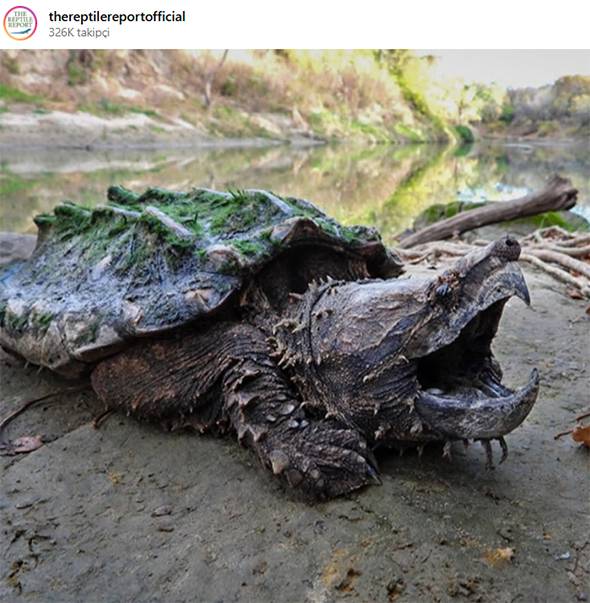
In a Facebook post, Wild Side Vets urged pet owners to think carefully before taking in exotic animals. “If you are struggling to keep your reptile, please talk to us in confidence. No judgment — we’ll do our best to help,” the post read. They emphasized the importance of never releasing exotic pets into the wild, as doing so can harm both the animal and the local environment.
Fluffy becomes a local sensation
Though initially feared, Fluffy has become something of a local celebrity. The veterinarians and rescuers decided on the name “Fluffy,” inspired by the giant three-headed dog from Harry Potter. Chamberlain laughed about the irony of the name, saying it suited the fierce yet fascinating creature perfectly.
Locals flooded social media with support and admiration for the rescue effort. “Fluffy, got to love that name for such an unusual creature,” wrote one commenter. Another said, “So glad he turned up at the right place to find the right people to help him.”
A new home for a misunderstood creature
After being examined and cared for, Fluffy will soon be relocated to a wildlife center in Cornwall, where he can live out his life in suitable, controlled conditions. The story has become a reminder for everyone to act responsibly when it comes to exotic pets — and to remember that even small creatures can grow into something far more than we expect.
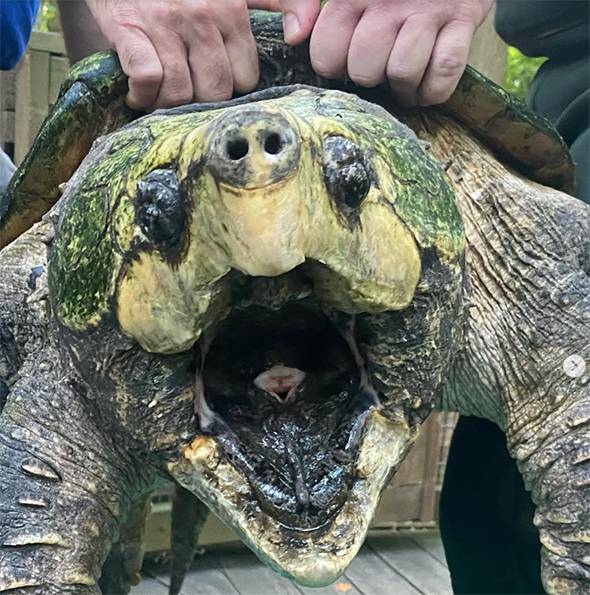
As Chamberlain said, “He turned up at the right place to find the right people.” Fluffy may not be a dinosaur, but his appearance and story have captured the hearts of many — and reminded us of the fine balance between human curiosity and nature’s fragility.

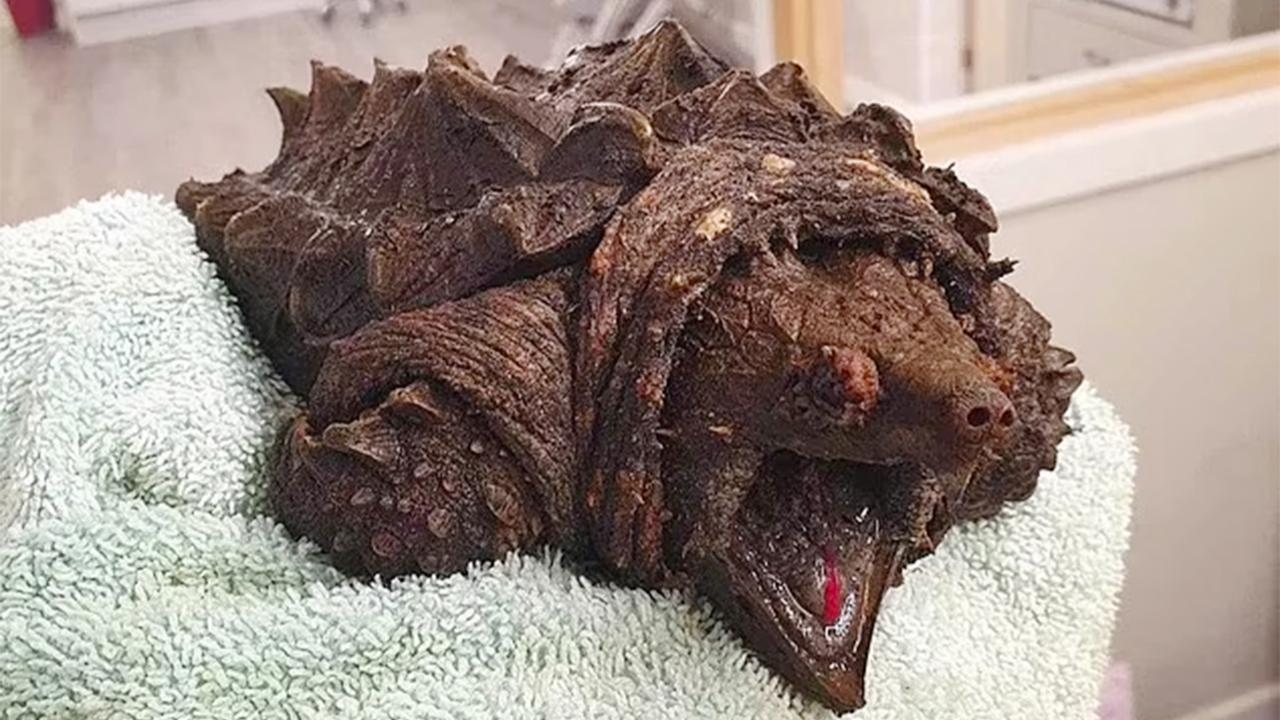


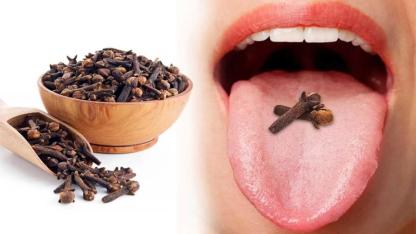
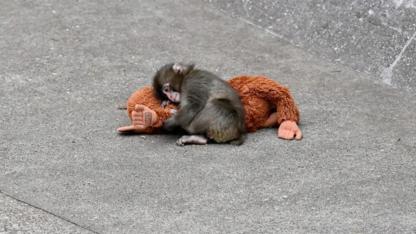


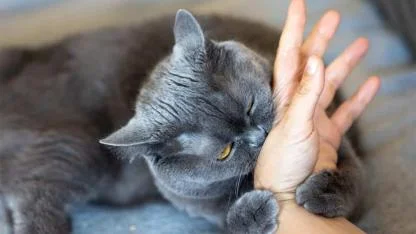

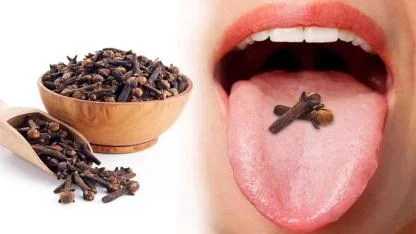
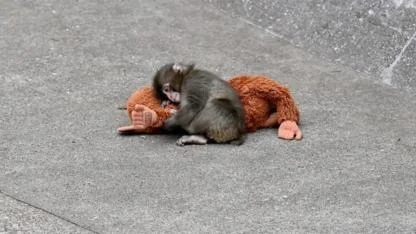
Yorumlar
Kalan Karakter: